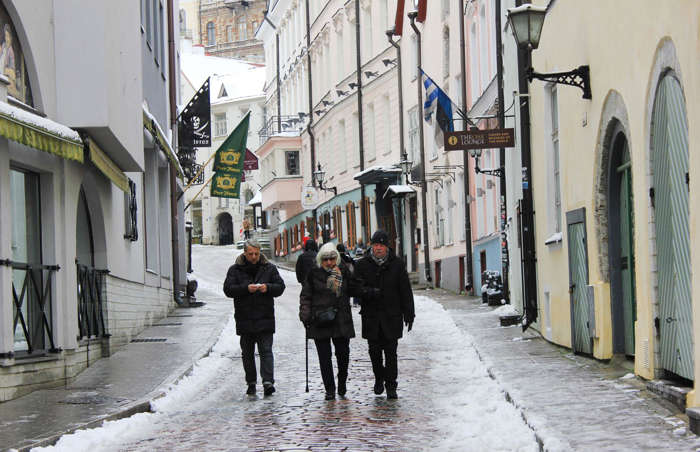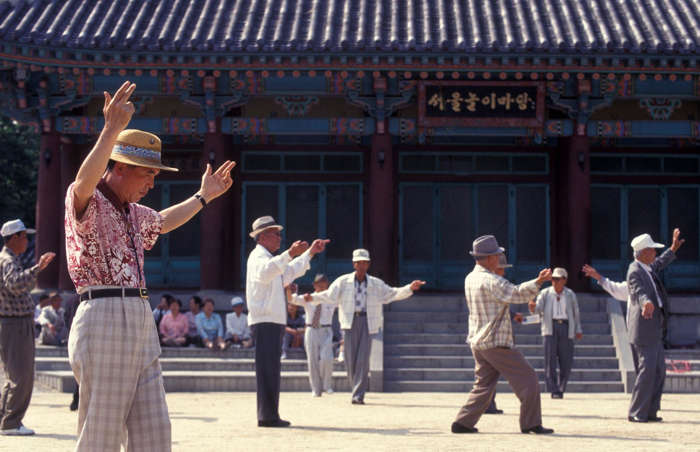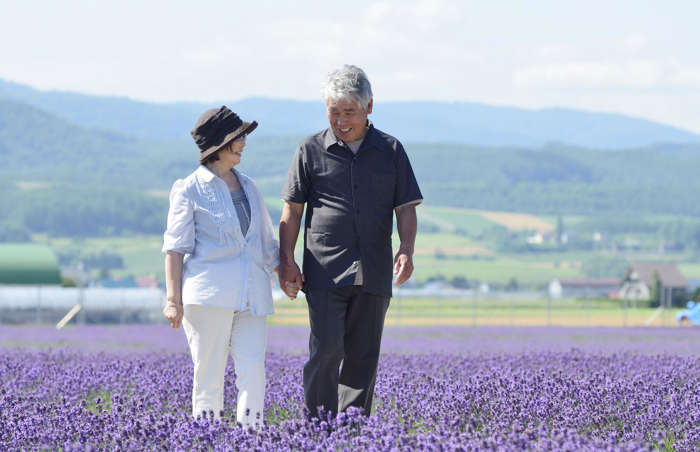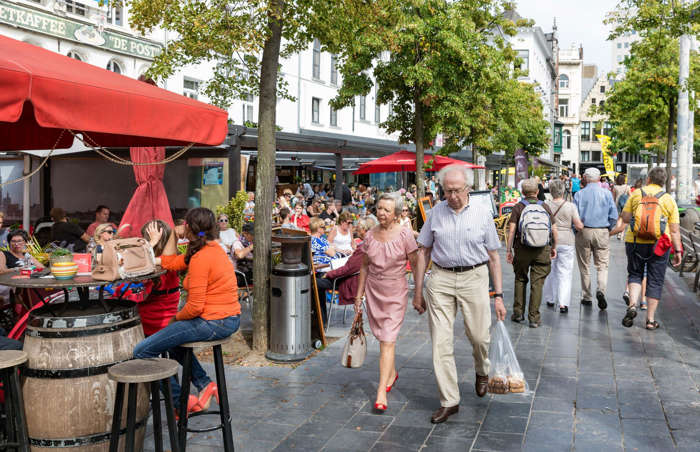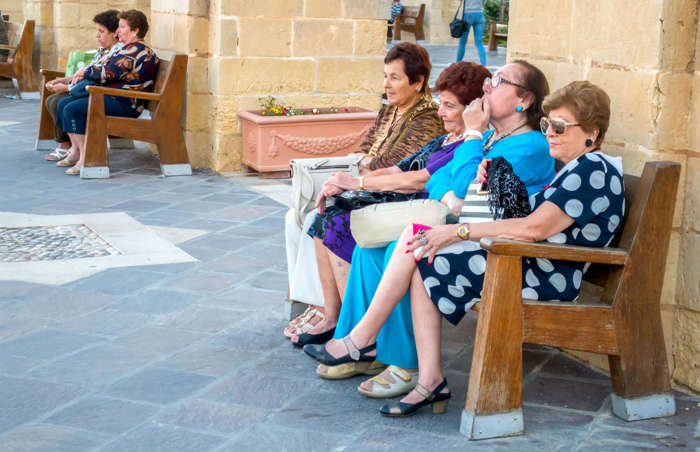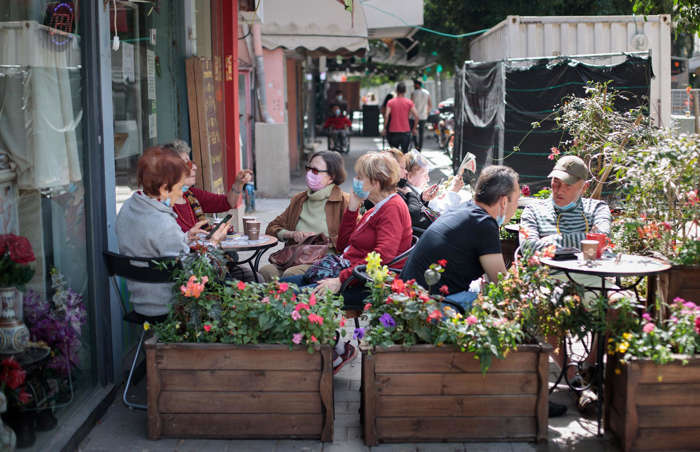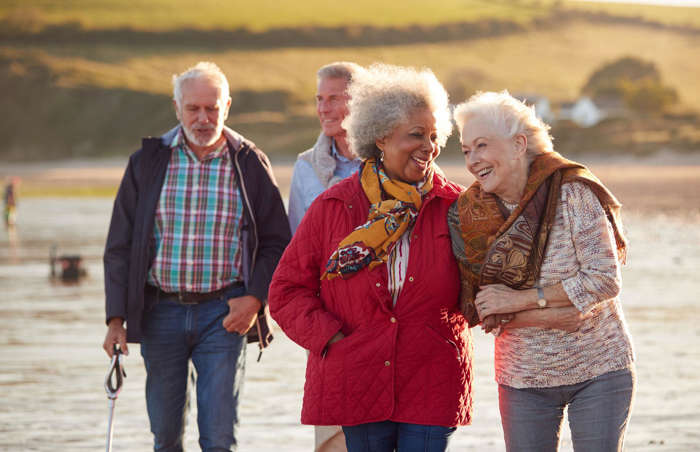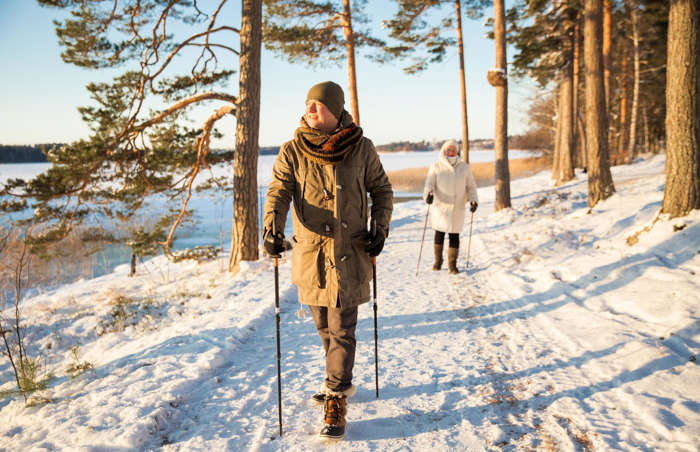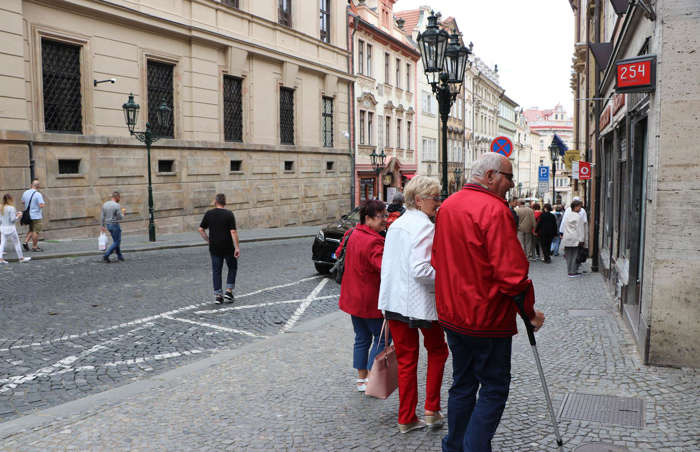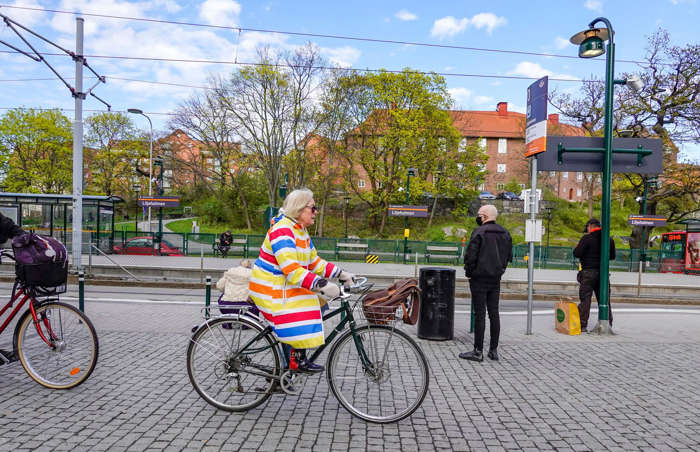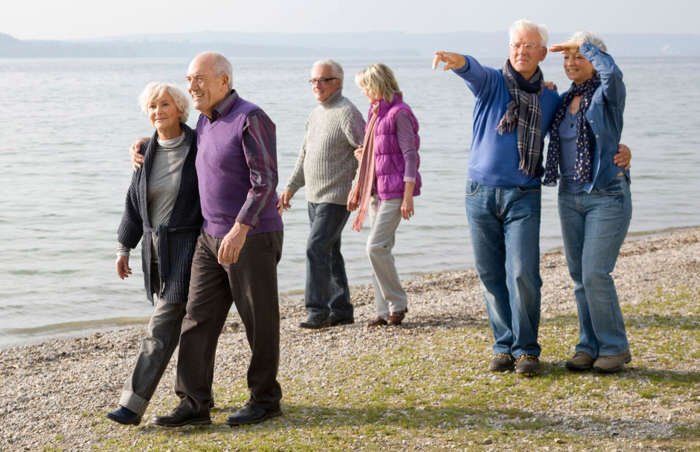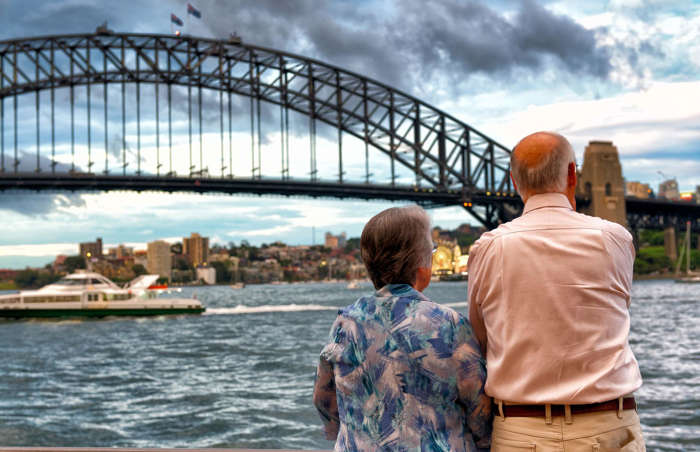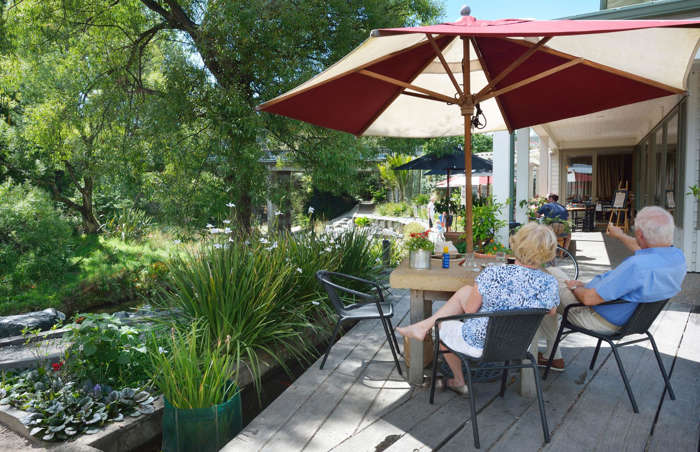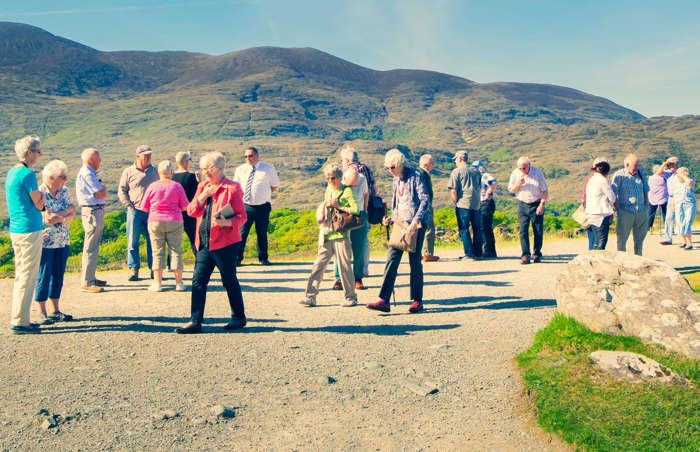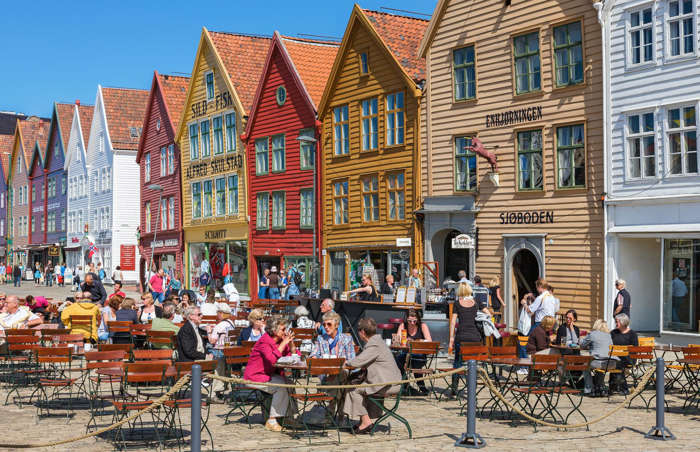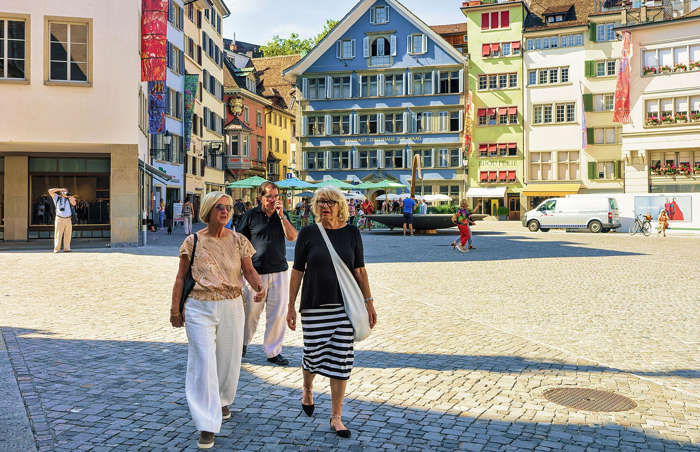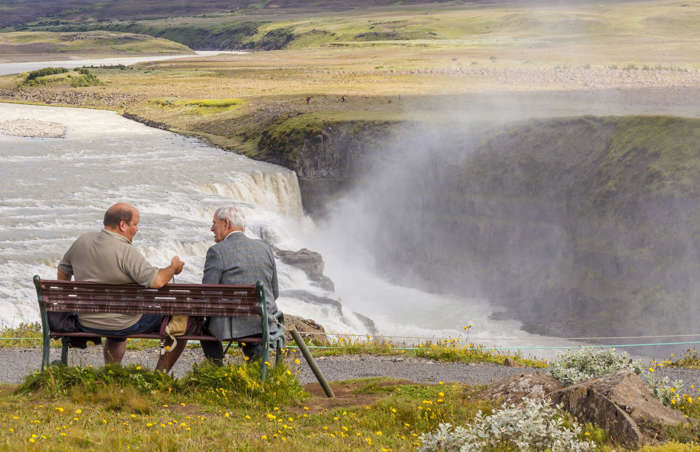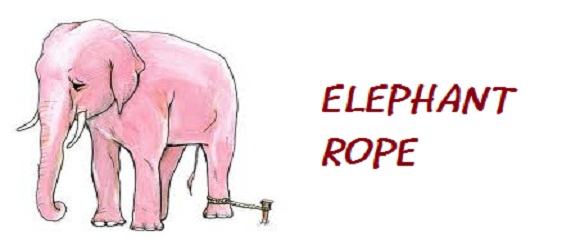Ever wondered which countries provide the best retirement for their elderly? Developed by Natixis Investment Managers and CoreData Research, the Global Retirement Index (GRI) ranks 44 countries based on 18 indicators within four sub-indexes.
The ranking considers a wide range of factors, rating everything from income-per-capita and inflation to life expectancy and healthcare spending. So which countries are the best to spend the golden years of retirement? Read on to discover the top 25.
25th place: France
Out of the 44 countries analysed, India has the poorest overall score, while France has retained its position as the lowest-rated among the top 25 for the second year running.
In terms of the GRI's four sub-indexes – Health, Quality of Life, Material Wellbeing, and Finances in Retirement – France has a mixed bag of results. It scores well for Health, sitting in fourth place, which is little wonder given its excellent healthcare system, yet is one of the lowest-ranked on the Finances sub-index. This is due to its high taxes being a major drag on retirees' incomes.
24th place: Estonia
Estonia is also a non-mover, remaining in 24th position in the latest index. It ranks best in the Finances sub-index, which encompass inflation, tax pressure, interest rates, and more, with the nation placing seventh of those ranked.
On the flipside, Estonia has the poorest score in the top 25 for Material Wellbeing – which covers income equality, income-per-capita, and unemployment – as well as the second-lowest for Quality of Life.
23rd place: South Korea
Moving down one place is South Korea. While it sat at position 22 last year, the country's tumble is due in part to the dubious honour of having the lowest score of the top 25 in the Quality of Life sub-index. South Korea scores poorly in three of the indicators: biodiversity, happiness, and environmental.
The Asian nation is also rated relatively poorly for Health but redeems itself in terms of the Finances sub-index, coming in fifth place for the latter. Its senior citizens get a better deal than those in many other countries, especially when factoring in the likes of taxes and inflation.
22nd place: Japan
Japan, which has moved up one position in this year's edition of the GRI, tops the Health sub-index. This makes sense given that it's the country with the greatest life expectancy (85.03 years, according to Worldometers), as well as having an exemplary healthcare system.
Japan is also joint number one for employment. Its weaker areas, however, are the Quality of Life and Finances sub-indexes. It scores the lowest out of all the 44 nations covered for old-age dependency since it has the oldest population on the planet, meaning fewer people of working age and a greater strain on the state to look after its elderly.
21st place: Belgium
Belgium retains its 21st position, although its overall score is slightly lower compared to 2020.
The country performs best in the Health sub-index (it's still a dip though, and ranks 16th) and worst in Finances. As is the case with neighbouring France, taxes can be punishing for Belgian seniors, and its population is ageing fast, which dents its total score.
20th place: Malta
Likewise, Malta is a non-mover in terms of its ranking but has still scored lower in the most recent edition of the GRI.
The island nation, which is located in the central Mediterranean Sea, has decent, albeit unspectacular, ratings in three of the four sub-indexes. For Material Wellbeing, however, it's landed in at an impressive seventh place thanks to its high levels of income equality and low unemployment rates.
19th place: Israel
Israel, which has moved down one spot, excels when it comes to Finances, even though its score in this sub-index is lower compared to the previous GRI.
The country also scores well in terms of Material Wellbeing. Its ratings for Quality of Life and Health, meanwhile, are stable but certainly nothing to write home about when compared to other nations in the top 25.
18th place: UK
The UK is sliding down in the rankings, having dropped one spot in the 2020 edition of the GRI and yet another in this year's. It now sits in 18th place, compared to 16th in 2019.
The country's best sub-index score is for Quality of Life, where it comes seventh overall, thanks to top scores for water and sanitation. However, Finances definitely aren't its strongest point, with the nation placed 29th due to tax pressures and debt.
17th place: USA
The US has also moved down one position this year, losing points in three out of four sub-indexes. Most notable is the dip in Health, with the country seeing a dramatic decrease in life expectancy due to the impact of COVID-19.
America's highest-rated sub-index is Finances, for which it's placed 11th, while its poorest is Material Wellbeing. Although income-per-capita is high, income inequality is rife across the country.
16th place: Slovenia
The highest climber in the latest index, Slovenia has moved up three spots, with improved scores across the Material Wellbeing, Quality of Life, and Health sub-indexes.
In contrast to the US, the Central European country has an exceptional income equality score, ranking third. Other notable achievements include its biodiversity, with the nation ranked second in the world for it in the GRI.
15th place: Finland
Sticking in 15th place, Finland is sits first in the Quality of Life sub-index. It's ranked the happiest country in the world, and has also garnered exceptionally high scores for air quality, water, and sanitation.
Where the Scandinavian country does fall short, however, is in the Finances sub-index. This is partly due to its ageing population, as well as the heavy tax burden it imposes on its senior citizens.
14th place: Czech Republic
The Czech Republic is another non-mover. Its overriding strength is Material Wellbeing, for which it scores the joint-highest out of all countries included in the index for employment. It also scores fourth for income equality.
This is offset by relatively low ratings in the Health and Quality of Life sub-indexes. The country's environmental indicator, for example, is the 10th-lowest among all GRI nations.
13th place: Sweden
Although still a great location for retirees, Sweden has actually slipped two positions down the rankings this year. This drop is nothing, however, compared to the nine positions it has dropped since 2019, when it ranked 4th.
Quality of Life is its strongest area, for which the Nordic nation is placed fifth, while its weakest is Finances, where its score has plummeted in the past two years due to its high rates of taxation and low interest rates.
12th place: Austria
Austria has maintained its position as the 12th best country, even managing to improve on its overall score in the latest GRI.
The country makes the top 10 when it comes to the Material Wellbeing and Quality of Life sub-indexes. However, it's placed at 14th in the Health sub-index, and scrapes into 35th for Finances thanks to its high taxes for senior citizens.
11th place: Luxembourg
The tiny principality of Luxembourg has risen two spots in the latest index. The Health sub-index is its top-scorer, with the country placed third in the world on account of its superlative health system and long life expectancy.
Like many wealthy European countries, however, the tax burden on older people is high in Luxembourg, which detrimentally impacts its ranking in the Finances sub-index.
10th place: Canada
Back to North America. Canada easily beats its southern neighbour, making it a better place for retirees to reside when compared to the USA.
That said, Canada has still moved down two spots in the rankings compared to 2020. Despite this, it maintains respectable scores across all four sub-indexes, with the highest awarded for Finances in Retirement and the lowest for Material Wellbeing.
9th place: Denmark
Although it's a non-mover in terms of its 9th place ranking, which it has retained since 2019, Denmark has still scored fractionally higher in the latest GRI.
Again, like the majority of affluent European countries, particularly those in Scandinavia, the nation shines in three of the sub-indexes but is let down by Finances as a result of its high levels of taxation.
8th place: Germany
Germany has shot up two spots in the latest index, landing higher scores in three of its four sub-indexes.
Material Wellbeing is its greatest strength, the country is placed fifth courtesy of its high levels of employment, while Finances is its weakest due to high taxes on seniors.
7th place: Australia
Moving Down Under, Australia maintains its position as the 7th best place for retirees, a position it has held since 2019. As opposed to the bulk of European countries that dominate the top 25, Finances is Australia's strongest sub-index thanks to its lower tax burden on seniors, although its score has dropped in the latest GRI.
Health is also highly rated, while Material Wellbeing has the worst score: Australia ranks 23rd within this sub-index.
6th place: New Zealand
New Zealand has also held on to its plum position of 6th place. The country is ranked even higher than Australia in the Finances sub-index, landing the third-best position against Australia's fourth.
It also comfortably outpaces its neighbour in Quality of Life due to its air quality, happiness, and environmental factors being particularly good, but scores lower in terms of both Health and Material Wellbeing.
5th place: Netherlands
Another non-mover, the Netherlands' highest-ranked sub-index is Material Wellbeing – the country is placed joint-first for employment, eighth for income equality and ninth for income-per-capita.
Health is also highly rated, as is Quality of Life. When it comes to Finances, however, the country ranks 28th. This is due to high taxes, which help to guarantee robust income equality as well as fund the public services necessary for superior living standards.
4th place: Ireland
An excellent all-rounder, Ireland has maintained its 2020 position in the 2021 edition of the GRI, making it the fourth-best country for retirees.
It enjoys high rankings across all four sub-indexes, in contrast to the many European nations that drop points due to high tax rates. The nation lands in the top 10 for Health, Finances and Material Wellbeing, and is placed 11th for Quality of Life.
3rd place: Norway
A wonderful place for retirees, non-mover Norway clearly has much to offer senior citizens. After all, the country placed an impressive second in three of its sub-indexes: Health, Material Wellbeing and Quality of Life.
The only fly in the ointment is the country's comparatively low score in the Finances sub-index, for which it scrapes into 25th place. Again, the nation's steep taxes are to blame for this fairly poor showing.
2nd place: Switzerland
Conversely, fellow non-mover Switzerland performs fantastically in the Finances sub-index, bagging 2nd place within the sub-index. (Singapore actually topped this sub-index but falls seriously short on other indicators, hence why it failed to make the overall top 25.)
Wealthy Switzerland has also picked up generous scores for Quality of Life and Health, placing 4th and 5th respectively. Its Material Wellbeing ranking could be better, landing an unremarkable 14th place.
Best: Iceland
Iceland pretty much ticks all the retirement security boxes, and has held on to its top-spot ranking for the third year running.
The country is ranked 12th for Health, with health expenditure especially strong. It's the world's highest-scorer for Material Wellbeing, while its scores for Quality of Life and Finances place it in the top 10 in both sub-indexes. Just don't forget to pack your thermals...
Info correct as of Jan 2022

